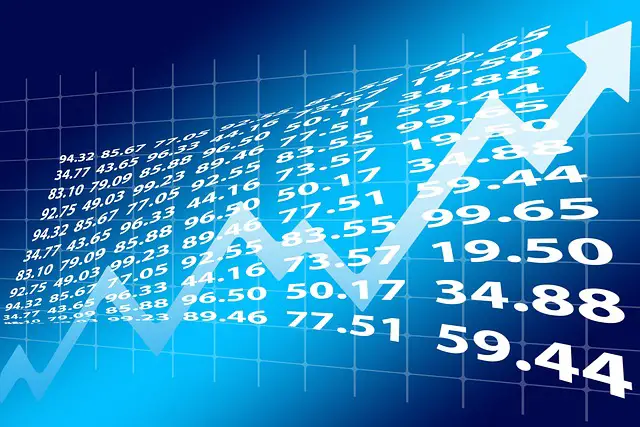What is a Stock Exchange?

What is a Stock Exchange? A stock exchange is a marketplace where stocks (i.e., shares in publicly traded companies) are bought and sold. They serve as a platform for companies to raise capital by issuing shares, and for individuals and institutions to invest in these companies by buying shares. Stock exchanges have strict listing requirements, and companies must meet certain standards in terms of their financial stability, size, and public disclosure in order to be listed. Some of the largest and most well-known stock exchanges in the world include the New York Stock Exchange (NYSE), the NASDAQ, and the Tokyo Stock Exchange.
How Do Stock Exchanges Work?
Stock exchanges work by matching buyers and sellers of stocks and facilitating the exchange of ownership of shares in publicly traded companies. When a company wants to go public and issue shares, it will typically do so by listing its stock on a stock exchange. Investors, including individual retail investors and institutional investors, can then purchase shares of the company on the exchange.
Trading on a stock exchange operates through a network of brokers and dealers who act as intermediaries between buyers and sellers. When a buyer wants to purchase a stock, they place an order with a broker. The broker then executes the trade by finding a seller who is willing to sell the stock at the price the buyer is willing to pay. If a match is found, the trade is executed, and ownership of the stock is transferred from the seller to the buyer.
The price at which a stock is traded is determined by supply and demand. If there are many buyers and not enough sellers, the price will go up. If there are many sellers and not enough buyers, the price will go down. This is why stock prices can fluctuate widely and why investing in the stock market involves a certain degree of risk.
In addition to facilitating the buying and selling of stocks, stock exchanges also provide transparency and accountability by requiring publicly traded companies to disclose financial and other information to the public on a regular basis. This information helps investors make informed decisions about which stocks to buy and sell.
History of Stock Exchanges
The history of stock exchanges can be traced back to medieval Europe, where merchants would gather in coffeehouses to trade stocks and bonds. The Amsterdam Stock Exchange, which was established in 1720, is considered to be the first official stock exchange. Over the next few centuries, stock exchanges emerged in other cities, including London, Paris, and Frankfurt.
In the United States, the New York Stock Exchange (NYSE) was established in 1792 when 24 brokers and merchants signed the Buttonwood Agreement under a tree on Wall Street. The NYSE quickly became the dominant stock exchange in the United States, and it remains one of the largest and most well-known stock exchanges in the world.
In the late 19th and early 20th centuries, the number of publicly traded companies and the number of stock exchanges continued to grow, leading to increased competition and the eventual consolidation of many exchanges into a smaller number of larger ones.
In the latter half of the 20th century, the advent of computers and the internet revolutionized the stock exchange industry. Electronic trading systems made it possible to execute trades much more quickly and efficiently than was previously possible, and online brokerages made it possible for individual investors to trade stocks directly without the need for a human broker.
Today, stock exchanges continue to play a critical role in the global financial system, providing a platform for companies to raise capital and for individuals and institutions to invest in these companies. While traditional stock exchanges still exist, many trades are now executed on electronic exchanges, and the use of algorithmic trading systems is increasing. Despite these changes, the basic function of stock exchanges remains the same: to provide a marketplace where buyers and sellers of stocks can come together and exchange ownership of shares in publicly traded companies.
What Are Some of the Largest Stock Exchanges in the World?
Below is a list of some of the largest and most popular stock exchanges in the world, based on market capitalization, are:
- New York Stock Exchange (NYSE): The NYSE is the largest stock exchange in the world, with a market capitalization of over $22.7 trillion as of 2022. It is located in New York City and is considered to be one of the premier exchanges for listing and trading large, established companies.
- NASDAQ: The NASDAQ is a global electronic marketplace for buying and selling securities, including stocks. It has a market capitalization of over $16.3 trillion as of 2023 and is known for listing technology and growth companies.
- Shanghai Stock Exchange (SSE): The SSE is the third largest stock exchange in the world, with a market capitalization of over $6.7 trillion as of 2022. It is located in Shanghai, China, and is the main exchange for listed companies in mainland China.
- Euronext (ENX): The ENX is the fourth largest stock exchange in the world, with a market capitalization of over $6 trillion as of 2022. It is located in Amsterdam and is the main exchange for listed companies in Europe.
- Tokyo Stock Exchange (TSE): The TSE is the fifth largest stock exchange in the world, with a market capitalization of over $5 trillion as of 2022. It is located in Tokyo, Japan, and is the main exchange for listed companies in Japan.
- Hong Kong Stock Exchange (HKEX): The HKEX is the sixth largest stock exchange in the world, with a market capitalization of over $5 trillion as of 2022. It is located in Central District, Hong Kong, and is the main exchange for listed companies in Hong Kong.
- Shenzhen Stock Exchange (SZSE): The SZSE is the seventh-largest stock exchange in the world, with a market capitalization of over $5 trillion as of 2022. It is located in Shenzhen, China, and is the main exchange for listed companies in China.
These seven exchanges are the largest and most well-known in the world, but there are many other stock exchanges in other countries, such as the London Stock Exchange (LSE), the National Stock Exchange of India, and the TMX Group Canada, among others. The exact ranking and market capitalization of stock exchanges can fluctuate over time based on market conditions and other factors.
What Would Happen if There Were No Stock Exchanges?
If there were no stock exchanges, it would have a major impact on the global financial system and economy. Here are some of the potential consequences of the absence of stock exchanges:
- Without stock exchanges, companies would have limited access to capital, as they would not have a platform to issue and sell stocks to raise funds. This would likely make it more difficult for startups and smaller companies to grow and compete.
- Individual investors would also have limited investment opportunities, as they would not be able to buy stocks in companies and participate in their growth. This could lead to a decrease in the amount of savings available for investment and a lower level of economic activity.
- Companies that still managed to raise capital would likely have to do so at a higher cost, as they would have to rely on alternative financing methods such as debt or private equity, which typically carry higher costs than equity.
- The absence of stock exchanges would also reduce the efficiency of the financial markets, as it would make it more difficult for buyers and sellers to find each other and transact. This could result in higher transaction costs and less liquidity.
In short, the absence of stock exchanges would have far-reaching consequences for both the financial system and the broader economy, making it difficult for companies to raise capital, reducing investment opportunities for individuals, and reducing market efficiency.


